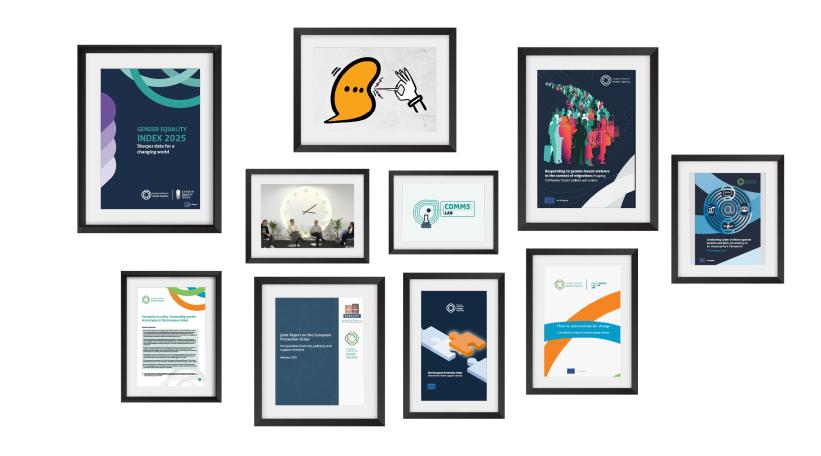
Violence against women a cause and a consequence of the inequalities between women and men. EIGE’s new report for the Western Balkans and Türkiye provides guidance for combatting violence against women.
Details in the data
Developing comprehensive data systems is how we will come closer to ending violence against women once and for all.
The current gaps in comprehensive, disaggregated data on various forms of violence against women pose a barrier to fully grasping the scope and scale of the problem in each Member State or region.
Disaggregated data helps response efforts to adapt prevention support to specific needs of the victims.
Aside from data systems, another essential framework in place is the Istanbul Convention, which was established in 2011 – a big stride forward in combatting violence against women.
The Convention recognises violence against women as not only an extreme form of discrimination against women but a violation of human rights.
Paths to progress
Many EU candidate countries and a potential candidate were first in line to sign and ratify the Istanbul Convention – proving their will and commitment to end violence against women in the Western Balkans.
And while data collection is an established and common practice in the Western Balkans and Türkiye, there is a need to improve data collection methodologies in order to comply with international standards.
We need to ensure vulnerable groups do not fall through the cracks and remain outside the data systems which could ultimately save their lives.
Iris Luarasi, PhD, President of the Group of Experts on Action against Violence against Women and Domestic Violence (GREVIO) Council of Europe and one of the authors behind this publication commends EIGE’s work in the Western Balkans and Türkiye:
GREVIO considers data collection a very important aspect of monitoring the implementation of the Convention by state parties. In our reports, data collected from EIGE on gender equality is an important source of information, for being high-quality and allowing an analysis of gender equality and gender mainstreaming in EU countries. Data collected from EIGE has also helped GREVIO to address intersecting inequalities in some of the baseline evaluation reports.
From EIGE’s new Guidance on strengthening data systems on violence against women in the Western Balkans and Türkiye, here are five concrete steps for building a stronger set of data systems.
- Mapping data producers and users
- Establishing coordination and a governance mechanism
- Establishing standards for data collection: entry, validation and analysis
- Establishing and implementing training
- Reporting statistics
Beyond policy and legislative frameworks, data systems also present a crucial opportunity to address mindsets and attitudes that are allowing violence to exist in the first place.
This is not only a call to action for data experts in the aforementioned region, but for any country seeking to strengthen their data collection methodologies and comply with international standards to help prevent violence against women.




